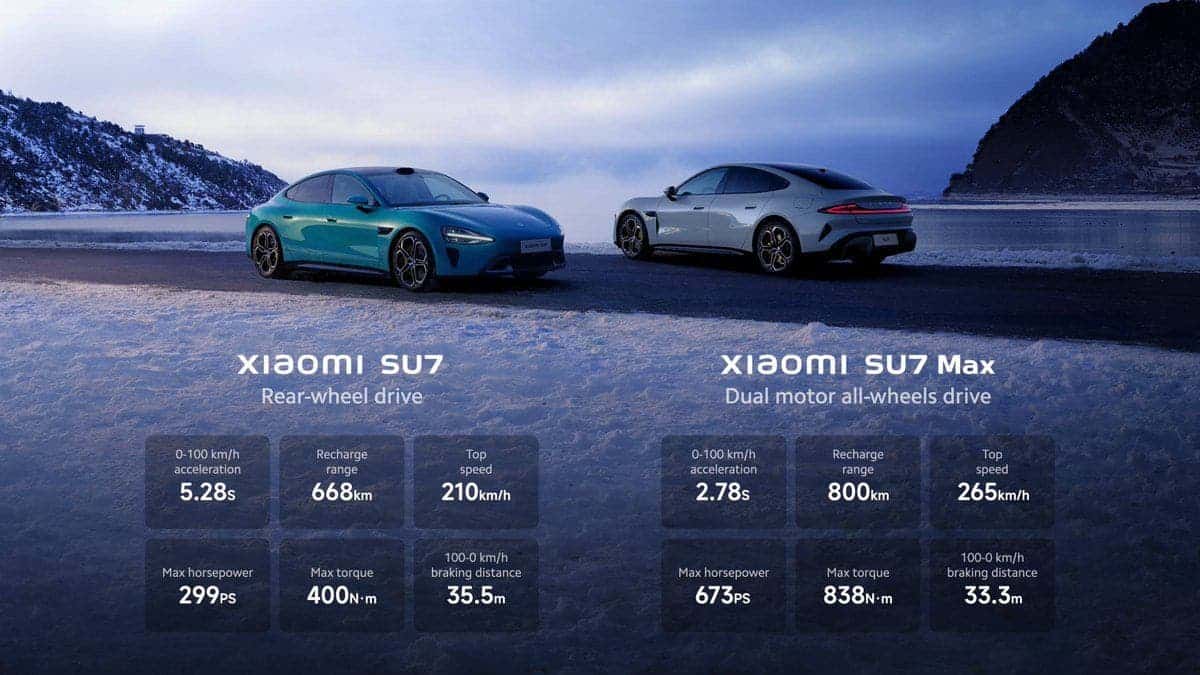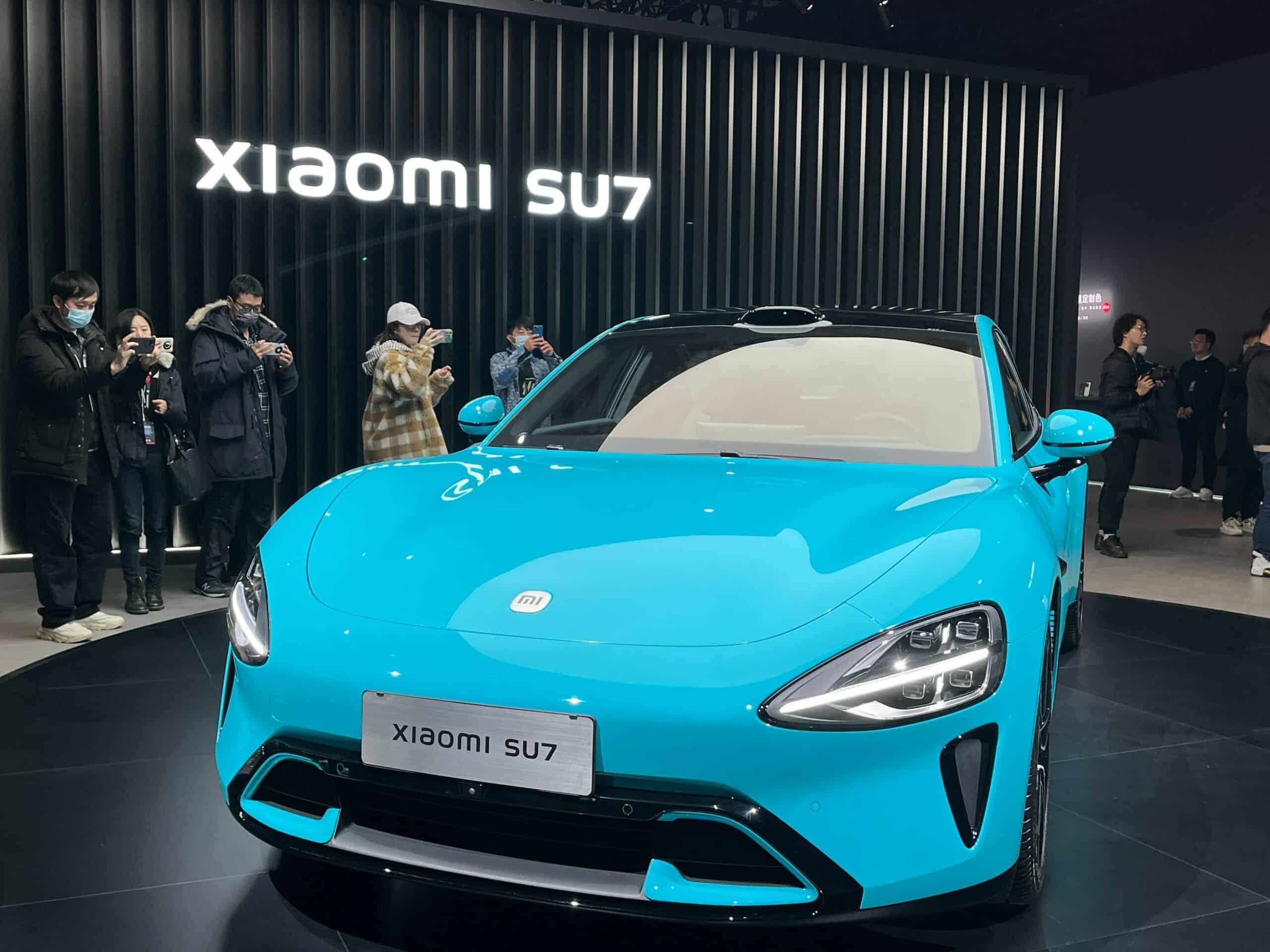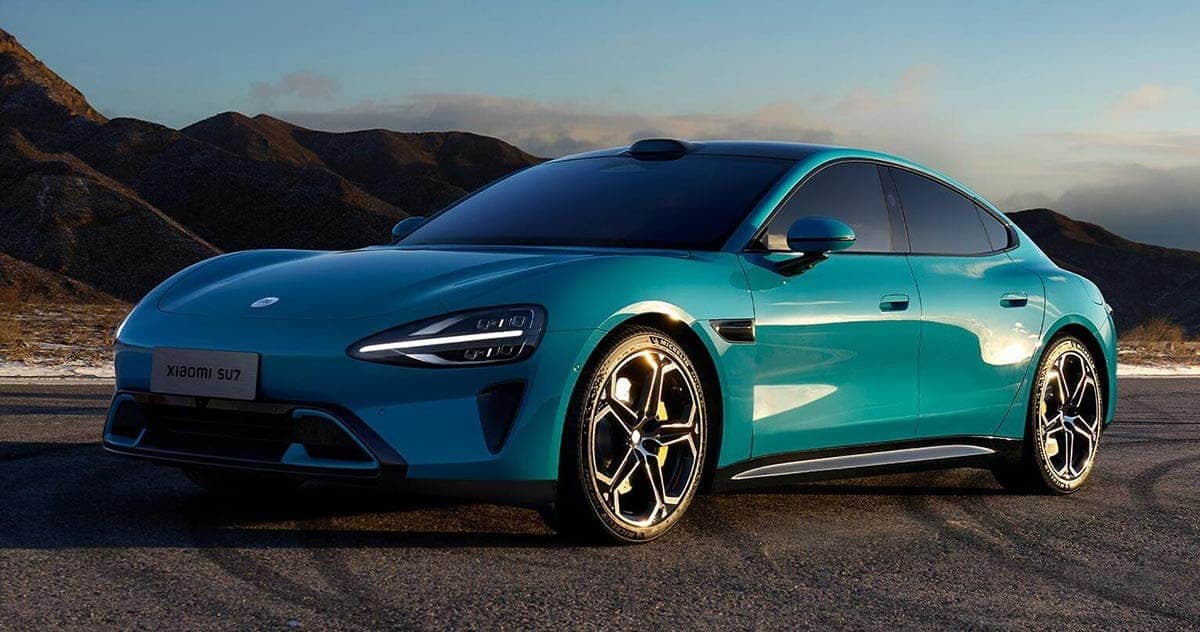Xiaomi, a Chinese electronics manufacturer, has made significant strides in the automotive industry with the launch of its first electric car, the Xiaomi SU7. The SU7, the sedan, is due to be officially unveiled on March 28, with customer testing starting on March 25. The company has already received over 100,000 bookings for the car, indicating strong demand for Xiaomi’s entry into the electric vehicle market.
Lei Jun posted on his personal Weibo on March 13 that Xiaomi Group officially announced that Xiaomi SU7 will be released on March 28. He also confirmed that bookings for this car continue to increase and already exceed 100,000. An internal document shows that Xiaomi employees have the right of first refusal. In addition, employees working for other brands managed by Lei Jun have right of first refusal to purchase the first batch of Xiaomi SU7 cars.
Prices and competition
The industry knows Xiaomi for offering affordable products. The SU7 is competitively priced and comes in two models. The SU7 RWD is priced at $35,200, while the SU7 AWD retails for $55,000. The top trim level, which comes with a high-nickel 101 kWh CATL battery and a mighty 495kW (664 hp), should crossed the $50,000 mark. In addition, the SU7 is a direct rival to Tesla’s Model S. It offers impressive features such as sub-3 second acceleration as well as an 800V fast charging system.
Interior design
Xiaomi chose a driver-oriented interior design for the SU7, combining traditional physical buttons with cutting-edge technology. The interior shows a flat-bottomed steering wheel, tactile switches, a horizontal central touchscreen and a center console. It should be noted that a number of conveniently located switches under the driver’s right hand attract attention. These switches are responsible for controlling important functions such as air conditioning, ride height and rear wing spoiler.
Gizchina News of the week
Sales and service
Unlike the direct model used by China’s major new car manufacturing powers, Xiaomi EV sales will include both directly operated stores and what it calls 2S (Sales and Service) authorized stores. Xiaomi Group signed letters of intent with the first 14 sales and service partners on December 29 at its headquarters in Beijing. The new Xiaomi EV retail is based on a core of direct sales and uses quality external forces in pursuit of maximum business efficiency and user experience. In addition, employees or those working for Lei Jun will have the right of first refusal.

A Xiaomi official said that Xiaomi will most likely conduct an intent survey for “Lei Jun” type companies. This is according to a source speaking to Sina Technology Huanju Group registered its intention to buy priority cars this week. However, there is a limit to availability. Having the right of first refusal means being able to receive priority delivery. The clerk said
“The first production capacity is insufficient. There are many channels to pay out deposits later, but how long it will take to deliver is the question.”
National security concerns
As Xiaomi prepares to start shipping the SU7, the US president wants an investigation into Chinese smart cars and their potential as a national security threat. The concern is that cars made in China and sold in the US could potentially collect sensitive data and transmit it abroad. In addition, there are concerns that the cars could even be remotely accessed or disabled. That stance could deprive American buyers of the SU7, which Lei Jun claims has better acceleration than a Porsche or Tesla EV.

Conclusion
Xiaomi’s entry into the electric vehicle market with the launch of the SU7 sedan has generated considerable interest. This interest is reflected in the over 100,000 bookings it has already received. The vehicle is competitively priced and offers impressive features, positioning it as a direct rival to Tesla’s Model S. However, potential national security concerns may affect SU7 availability in certain markets. Nevertheless, Xiaomi’s move into the automotive industry is a testament to the company’s ability to innovate and adapt to new markets.
Xiaomi’s first electric car, Xiaomi SU7 gets over 100,000 reservations







